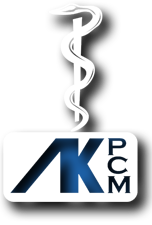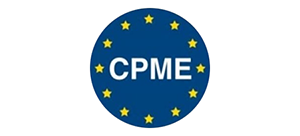Conclusions of the 32nd ZEVA Symposium held in Skopje

The 32nd ZEVA Symposium was held in Skopje from September 5-6, 2025. Under the central theme of „The Future of Doctor's Chambers" more than 40 presentations were given, sharing a great deal of information and data.
The following conclusions are a summary of the discussions held during the sessions:
- Artificial Intelligence:
Chambers recognize the immense importance of applying artificial intelligence to modern medicine, particularly in diagnostics, personalized treatment, and administrative optimization. However, it is essential for each country to establish a comprehensive national strategy, legal framework, and action plan for AI implementation. This proactive approach will help mitigate challenges related to accountability, data protection, and the professional training of physicians. The regulatory examples presented by representatives from the Austrian and German medical chambers offer a valuable blueprint for other countries. It is imperative that doctor's chambers play an active role in shaping these regulatory processes. Some medical chambers have already begun using AI in their daily work, such as in CME training or in the area of member support and enquiries through chatbots.
- Involving younger generations in chamber work / demand of medical studies
Almost all medical chambers report a high average age, particularly in their committees and bodies. This highlights the urgent need to make the voluntary work at a medical chamber more attractive for a younger generation of healthcare professionals. Many medical chambers have established committees for young physicians and offer special services for their new members. While the level of interest among young people in pursuing a medical career varies by country, tailored strategies are needed. In countries where interest is low, state-level initiatives must be implemented to alter public perception and motivate young people to choose medicine. Conversely, in countries with a robust supply of new physicians, the focus should shift to retention strategies, including ensuring secure employment, providing dignified incomes, and creating opportunities for continuous professional development.
- Strategic Staff Planning
Regarding the involvement of Medical Chambers in medical staff planning, it was noted that staffing policies differ significantly across countries. The existence of a national plan for healthcare workforce needs could greatly improve the ability to anticipate system demands and ensure the timely training and deployment of new personnel. Healthcare policymakers should leverage the specialized expertise and extensive physician databases held by the chambers to facilitate more effective planning.
- Mobility and Diploma Recognition
The legal requirements for the recognition of foreign qualifications vary from country to country. In EU countries, there are defined processes for this, and medical chambers are involved to varying degrees in the recognition of foreign qualifications. Since medical chambers have a good overview of healthcare needs and standards, it would be desirable to involve them in these issues in all countries.





